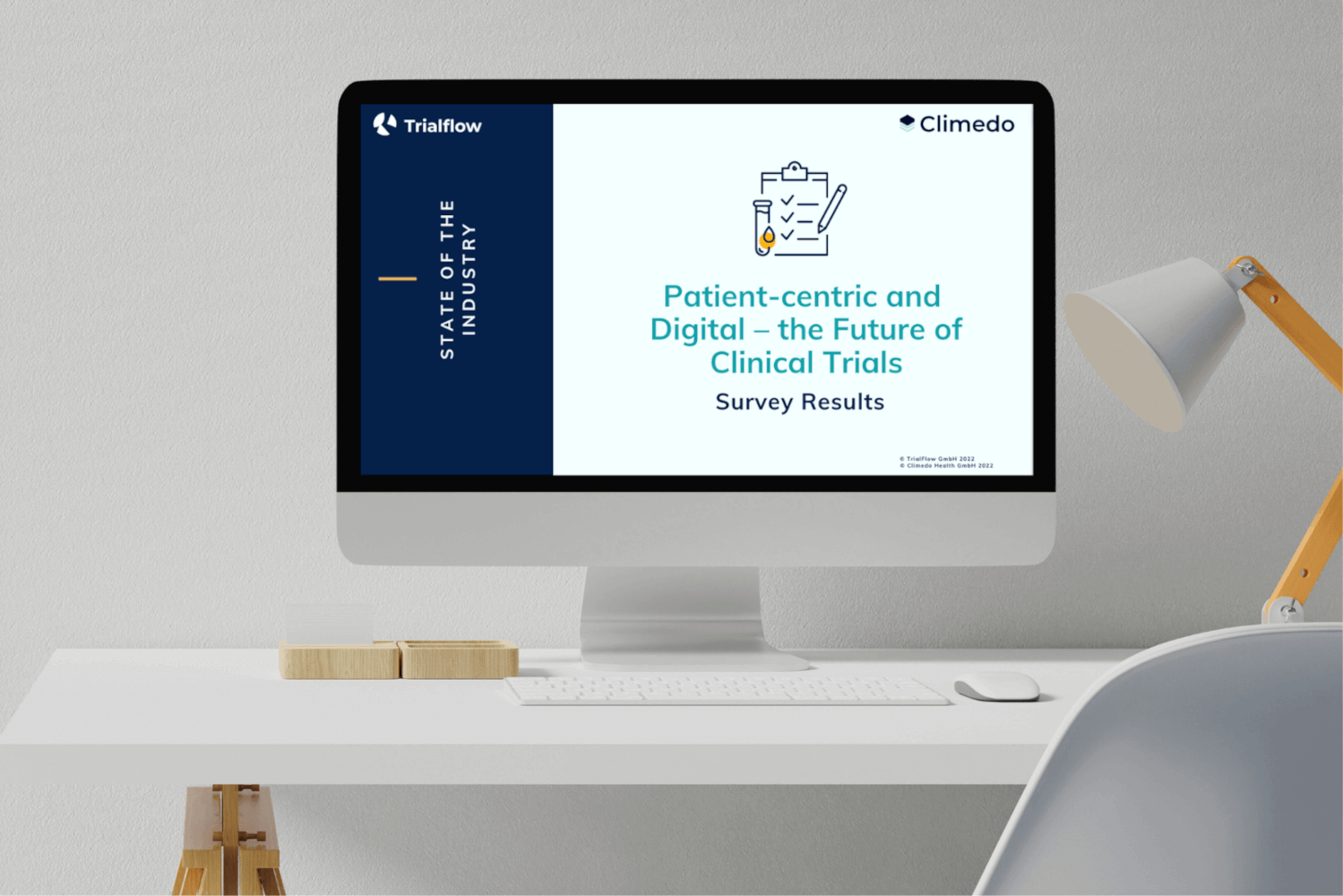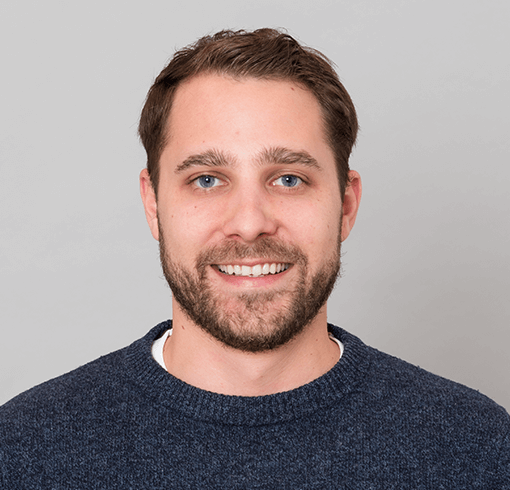How do Digital Technologies Support Patients with Orphan Diseases?

DATE
October 06, 2022
AUTHOR
Sascha | Co-Founder & CEO
Orphan diseases are often chronic and not fully curable. The fact that they are rather poorly researched makes the situation even worse for those affected. They feel left alone and urgently need support. Therapies for orphan diseases also pose special challenges for research. Given the lack of historical data and concrete points of comparison, conducting clinical trials is very complex. The small number of potential participants makes recruitment difficult, too. In addition, rare diseases often place a heavy physical burden on those affected. There is little energy left for study participation and the related effort needed.
Therefore, healthcare professionals need to understand the challenges that people with orphan diseases face on a daily basis. Only then can doctors and nurses provide them with the best possible support. Lack of understanding on the part of the people treating them, on the other hand, often leads to not sticking to treatment plans and terminating studies prematurely.
This is where digital technologies come in, by supporting the care of patients with orphan diseases and demonstrably improving clinical trials. How does it work exactly? Find out in this article.
Here’s where digital technologies are beneficial is worth it:
1. Identifying and diagnosing orphan diseases better
2. Recruiting participants for clinical trials
3. Overcoming spatial distances with DCTs
4. Providing more support for patients with orphan diseases
1) Identifying and diagnosing orphan diseases better
In many cases, the diagnosis of orphan diseases is like running the gauntlet for patients. On average, it takes six years until patients obtain assurance about their disease. During this time, they drag themselves from specialist to specialist, dealing with worries, uncertainty and growing weakness. At the same time, the risk of misdiagnosis increases. For patients, this means a particularly high level of suffering.
Big data approaches are a great opportunity to identify and diagnose orphan diseases more quickly. They make a significantly larger amount of data available. This data is not limited to regional specialists or national research, but also comes to a large extent from global sources. Despite the small number of people affected, it is thus possible to obtain meaningful and statistically relevant data.
For Big Data approaches to be profitable, however, careful and comprehensive documentation of health data is a prerequisite. Digital technologies such as telemedicine and wearables, but also ePRO and eCOA, create optimal conditions for efficiently recording all relevant data. This makes structured health data widely available and enables better as well as faster diagnoses.
2) Recruit participants for clinical trials
In addition to the small number of possible participants in a clinical study on orphan diseases, patients are usually widely scattered geographically. Both of these factors make recruitment a mammoth task. Around 25% of all studies on orphan diseases even have to be cancelled due to insufficient recruitment. This ultimately leads to higher costs, which also makes the implementation and financing of the studies less attractive for study centers and sponsors. Conversely, the financial expenditure of a study can be significantly reduced if more suitable patients can be identified and recruited.
Decentralized clinical trials (DCTs) are a promising solution here. With the help of digital technologies, they reduce the need to conduct certain examinations and medical consultations on site. Instead, participants can conduct a big part of the trial from home, for example using medical wearables, completing questionnaires such as ePROs from their smartphones and communicating with their treating physicians via telephone or video consultations. In this way, DCTs reduce the overall burden on patients and improve the patient experience. The results? Increased patient compliance and retention.
Survey Results: Patient-centric and Digital – the Future of Clinical Trials
Together with Trialflow we conducted a survey on digital and patient-centric solutions in clinical trials in fall 2022. The survey addresses the following areas:
- Status Quo
- Challenges
- Trends and prospects

3) Overcoming physical distances with DCTs
Recruitment for orphan disease trials is not only difficult for the clinic. Patients often have problems finding a suitable clinical trial. Even if participation is theoretically possible, the study center is often far away. The time-consuming journey is often a great and unreasonable burden for patients who are already weakened by the course of their disease. In addition, long distances to the practice or clinic also entail high costs and an enormous amount of time.
DCTs, on the other hand, are not geographically fixed and thus simplify participation – regardless of the distance between the study center and the patient’s home. Therefore, they bring considerable added value, especially for research on orphan diseases, where the participant pool is very small and widely dispersed to begin with. For example, patients can use eCOA and ePRO to securely and easily transmit medical data, e.g. about their well-being or symptoms. Medical wearables and teleconsultations also keep the treating physicians informed about the condition of the participants and make it possible to collect relevant research data easily and efficiently.
4) Increase support for patients with orphan diseases
Orphan diseases pose challenges for both patients and healthcare professionals. According to one study, 60% of people with orphan diseases feel inadequately supported. For orphan diseases, this number was significantly higher than it was for a reference sample of cancer patients. This refers to the healthcare system and the general availability of information, as well as to psychological and physical support, assistance in everyday life and help with care and sexuality issues.
Digital technologies offer the opportunity to integrate informative resources and make them available to everyone. In addition to neutral information on the course of the disease, possible therapies and contact points for support, such as online patient communities, can create a platform for patient exchange. With ePRO, it is also possible to react to the information provided by patients and to automatically display corresponding tips or information. If a patient indicates in an ePRO survey that he/she does not feel understood or supported, a contact person or a suitable community can be suggested immediately as part of the validation process.
Conclusion: All phases of orphan disease research benefit from digital technologies and decentralized studies
Digital health technologies simplify the collection, processing and analysis of data for all stakeholders. Big data also makes it easier to identify and recruit potential study participants. Research on orphan diseases benefits particularly strongly from this, as the pool of potential patients is very small and widely scattered.
In traditional clinical trials, patients often have to travel long distances to the study center, which puts a strain on their health and requires a lot of time and money. In addition, about 75% of orphan diseases begin in childhood and thus involve the entire family – for example, in the form of absences from school and work or necessary care for siblings. For parents, it is often difficult or impossible to manage a full-time job in combination with the trial participation of a sick child.
Digital technologies lower the barriers for patients, reduce the costs of conducting the study and enable the study center to collect data more efficiently. In this way, DCTs benefit everyone involved. In the process, orphan disease research is advanced and more people gain access to potentially life-saving treatments.
Our electronic data collection (EDC) tools can help you collect your data in a decentralized way, directly from the patient. Feel free to reach out to us or schedule a software demo! We look forward to supporting your research on orphan diseases.






